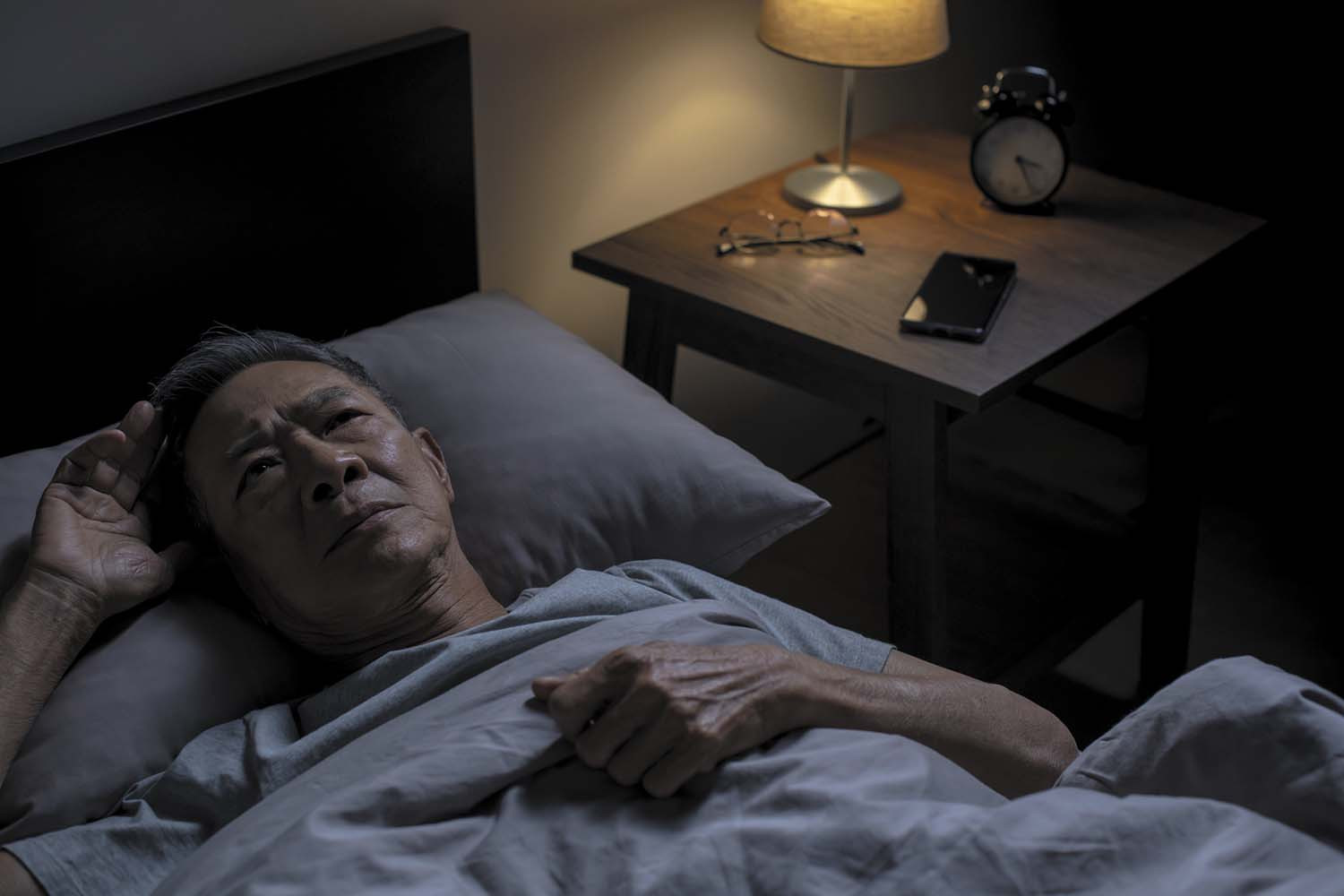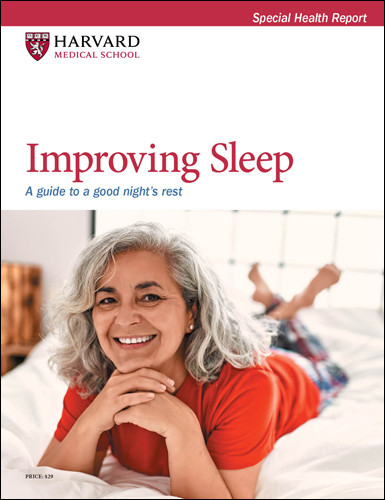Sleep and brain health: What's the connection?
Disrupted sleep, which has many causes, is linked to a heightened risk of stroke, including "silent" ones.
- Reviewed by Christopher P. Cannon, MD, Editor in Chief, Harvard Heart Letter; Editorial Advisory Board Member, Harvard Health Publishing

Asleep shortfall doesn't just make you feel groggy and grumpy the next day. Over time, insufficient sleep can harm your cardiovascular health. The evidence is so compelling that the American Heart Association (AHA) added healthy sleep duration to its "Life's Essential 8" recommendations to lower heart attack and stroke risk.
Adults should strive for seven to nine hours of sleep each night. But the quality of your sleep is also important, says Dr. Susan Redline, the Peter C. Farrell professor of sleep medicine at Harvard Medical School. Various sleep problems can cause disrupted or fragmented sleep (see "What's sabotaging your sleep?").
"Even if you sleep for at least seven hours, sleep disruptions can prevent you from getting enough deep sleep and may also cause unhealthy blood pressure surges," says Dr. Redline. Those problems may increase the risk of cerebrovascular disease and cognitive issues, according to a scientific statement by the AHA published in the March 2024 issue of the journal Stroke. Cerebrovascular disease includes conditions that affect the brain's blood vessels, including "silent" strokes, which go unrecognized.
What's sabotaging your sleep?These disorders can affect not only the duration but also the depth and continuity of sleep. Insomnia refers to the inability to fall or stay asleep, which is commonly linked to stress or anxiety. Other possible sleep disrupters include painful medical conditions; caffeine or alcohol use; and environmental factors such as light, noise, an uncomfortable bed, or a room that's too hot or cold. Obstructive sleep apnea is marked by repeated pauses in breathing caused by narrowing of the throat during sleep, which can lead to drops in oxygen levels and to multiple awakenings throughout the night. Periodic limb movement disorder is characterized by involuntary jerking or twitching movements in the legs during sleep. For more information, see Harvard Health Publishing's Special Health Report Improving Sleep. |
Why deep sleep is vital
Over the course of the night, people cycle through different phases of sleep, spending about a quarter of the time in deep (slow-wave) sleep — a phase that's vital to restoring energy and supporting memory, says Dr. Redline, who co-authored the AHA statement. Blood pressure and heart rate are at their lowest point during deep sleep. Meanwhile, the brain's housekeeping system — a series of channels called the glymphatic system, which drains cerebrospinal fluid — flushes away toxins, including beta-amyloid and other proteins linked to Alzheimer's disease.
When people don't get sufficient amounts of deep sleep, blood pressure may not decline as it should. This can trigger activity in cells in blood vessel walls and activate damaging inflammation. The glymphatic system, whose function depends on healthy brain blood vessels, may falter.
Foiled by fragmented sleep?
Brief awakenings during the night, especially those caused by sleep apnea, can cause surges in the hormone epinephrine and raise blood pressure, a problem known as nocturnal hypertension. "These blood pressure elevations can leave people at risk for cerebrovascular problems," says Dr. Redline. Small blood vessels deep in the brain may be damaged by tiny clots or microbleeds, causing so-called silent strokes, which cause no noticeable symptoms. But a series of such strokes over time can lead to a condition known as multi-infarct dementia.
What you can do
If you don't feel rested and refreshed when you wake up in the morning despite getting at least seven hours of sleep, you might have a sleep disorder. Talk to your doctor for help identifying and addressing the problem, Dr. Redline advises. If your bed partner or family member says you snore loudly, see "Should you be tested for sleep apnea?" in the May 2023 Heart Letter.
Even if you don't think you have insomnia, you might be experiencing frequent, brief awakenings without noticing them. Wearable devices (monitors worn on the wrist or finger) feature apps that measure sleep efficiency. The data may provide clues about brief awakenings as well as limb movements during sleep, says Dr. Redline.
Make an effort to follow all the steps in Life's Essential 8, which are closely interrelated. "Think of sleep as one of the vital habits that helps reinforce all the other healthy practices," says Dr. Redline.
Image: © Filmstax/Getty Images
About the Author

Julie Corliss, Executive Editor, Harvard Heart Letter
About the Reviewer

Christopher P. Cannon, MD, Editor in Chief, Harvard Heart Letter; Editorial Advisory Board Member, Harvard Health Publishing
Disclaimer:
As a service to our readers, Harvard Health Publishing provides access to our library of archived content. Please note the date of last review or update on all articles.
No content on this site, regardless of date, should ever be used as a substitute for direct medical advice from your doctor or other qualified clinician.
















